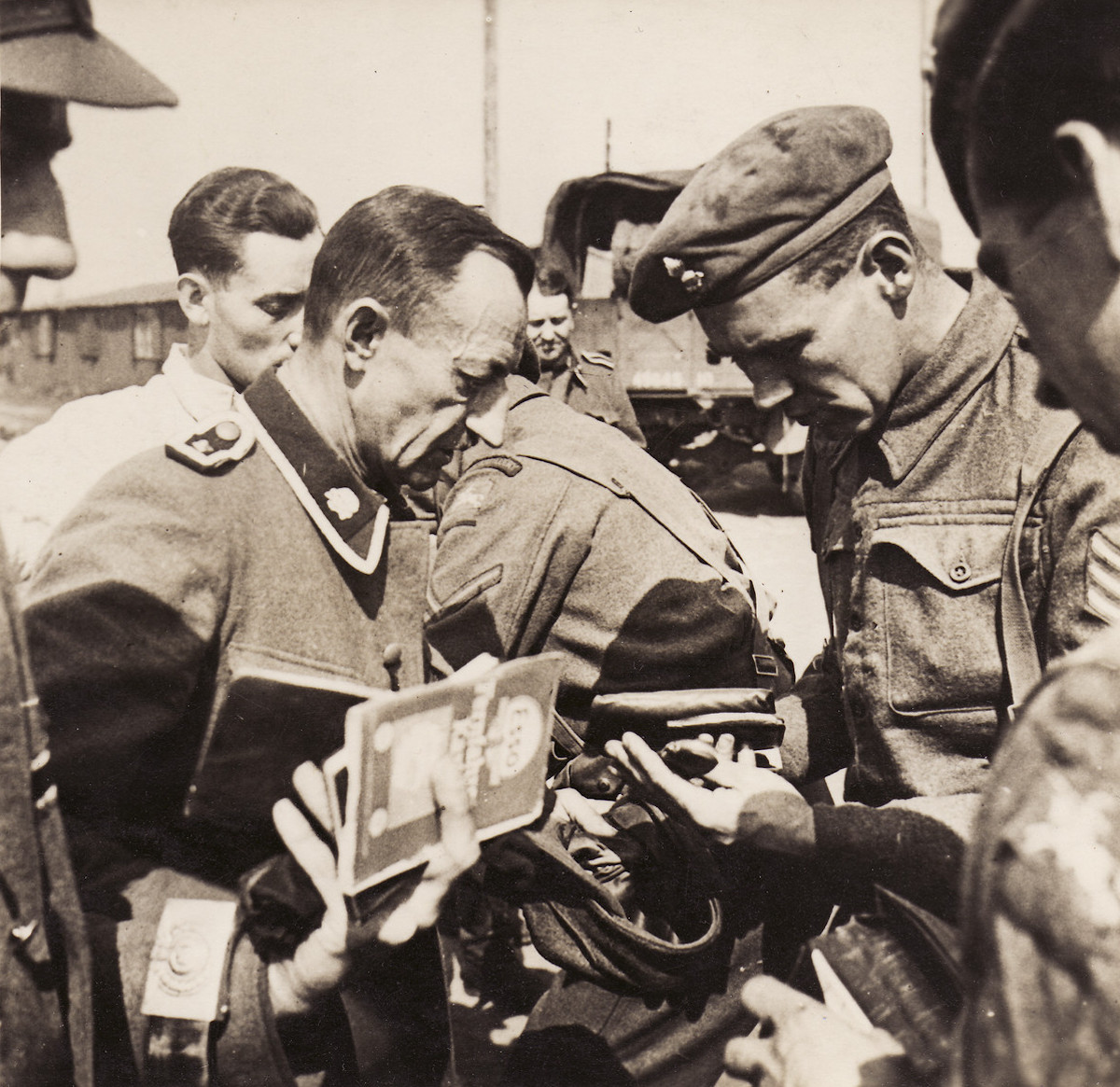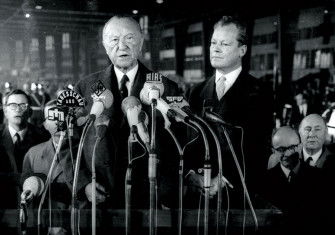‘Don’t Let’s Be Beastly to the Germans’ by Daniel Cowling review
In Don’t Let’s Be Beastly to the Germans: The British Occupation of Germany, 1945-49, Daniel Cowling brings lost stories to light – some of them, at least.

In 1945, after six years of bitter fighting, Britain found itself tasked with occupying a vast area of Northern Europe stretching from the industrial Ruhr in the south to the port cities of Kiel and Lübeck in the north. This gargantuan operation had to be carried out against the backdrop of sharply divided domestic attitudes, shaped by Robert Vansittart, 1st Baron Vansittart’s deeply Germanophobic pamphlet Black Record: Germans Past and Present on one side, and Victor Gollancz’s conciliatory and humanising answer Shall Our Children Live or Die? A Reply to Vansittart on the German Problem on the other. Vansittart’s hostile essay, published in 1941 during the depths of the war, had resonated deeply with the British public but, with the war won, his calls to strip Germany of its industry – or even to turn the country into agricultural land – hardly constituted a constructive plan to ‘win the peace’. Nevertheless, the prevalence of such sentiments meant that the Control Commission for Germany (CCG) – the organisation charged with administering Britain’s German occupation – had to put up with a constant stream of hit-pieces published in outlets such as the Daily Express, Daily Mail and Daily Telegraph that not only questioned its mission and methods, but British presence in Germany as a whole. The more time that passed, the less people considered the occupation of Germany an ‘unavoidable duty’. Instead, it began to resemble a burden on the British tax payer.
But it was a job that needed to be done, more often than not in the midst of completely destroyed communities. In his new book, Daniel Cowling poignantly describes the arrival of CCG personnel in ‘corpse towns’, quoting British army interpreter William Peters as he entered Cologne: ‘People talk in low voices as if they are afraid to wake the dead below the debris. This is a cemetery, and one does not make any noise in a cemetery!’ The complex themes of denazification, demilitarisation, deindustrialisation and democratisation are woven into a convincing narrative and yield some surprising revelations. For example, Cowling reveals how, against the backdrop of the end of Empire, British officials arrived from all over the world to administer the British zone, bringing their colonial attitudes to governing with them. Kurt Schumacher, the leader of the German Social Democratic Party, lamented that ‘the only thing he regretted about India getting its independence was that the Indian Civil Service would now turn up in Germany’, a fear, Cowling states, ‘that was by no means baseless’. No less fascinating is Cowling’s examination of the denazification process, which saw 200,000 Germans removed from their jobs in the British zone alone. Inevitably, such high numbers in such a broad operation also saw a number of indispensable experts losing their positions, which in turn caused a marked increase in industrial accidents. It also led to 87 executions, controversially carried out with the same guillotines the Gestapo had used only a few years earlier – and at the very same locations.
There is, however, one major problem with the book that needs to be addressed: German voices are almost completely absent from its pages. A few scattered newspaper articles are all that the reader is offered to gauge how Germans lived their lives under British occupation; not a single German memoir was consulted to reconstruct their perspectives and experiences. This oversight unwittingly leaves the Germans to be portrayed as passive actors in the occupation of their country – it often seems as if the profound societal reforms that resulted from the policies implemented by the CCG just washed over them. This is an issue. For example, although Cowling touches on the highly contested issue of sexual assault by members of the CCG, the only example he cites is that of the trial of William Jones. Four years after raping and killing a German woman, Jones decided that he wanted ‘a fresh start in life’, and therefore turned himself in to the police so as to ‘get it off [his] chest’. Jones would be executed for his crimes, but his case was exceptional. This story misrepresents the way such issues tended to be handled (attackers often faced little or no punishment) and it also fails to include the reaction of German women to the new realities of occupation, meaning the author and his book miss the opportunity to consider the occupation from another, equally important, point of view. This lack of engagement with German actors can also be seen in Cowling’s analysis of the re-establishment of the school system. We get to know Captain Jack Boyce in the Education Branch at Minden, who rightly expresses pride in his role in the process, yet we do not hear from a single university administrator, professor, school teacher or pupil. It feels as though half the story is missing.
None of this is to deny Cowling’s valuable contribution to our understanding of Britain’s brief German occupation. He does not shy away from discussing some of its more unsavoury aspects, such as the fatal interrogation methods used at Bad Nenndorf in Lower Saxony, the racketeering of cigarette rations, the misuse of funds by military spouses, or the shameless efforts of CCG-sanctioned intelligence officers to pry loose trade secrets from German subjects. The book moves seamlessly between the good, the bad and the ugly of the occupation, from the horrific discovery of Bergen-Belsen in April 1945, through the currency reform and Berlin airlift in 1948, to the foundation, in 1949, of West Germany, a democratic state complete with its own Grundgesetz (constitution) and a seat in Bonn. As Cowling concludes, what the CCG pulled off in four years was nothing less than a dramatic about-turn that transformed the West Germans from a perennial enemy into a valuable ally against communism. The men and women who came to Germany to piece together an alien country often go overlooked in accounts of postwar Europe; Cowling has done us a great service bringing their stories to light.
-
Don’t Let’s Be Beastly to the Germans: The British Occupation of Germany, 1945-49
Daniel Cowling
Head of Zeus, 478pp, £27.99
Buy from bookshop.org (affiliate link)
Bastiaan Willems is Lecturer in the History of War in 20th-Century Europe at Lancaster University.






